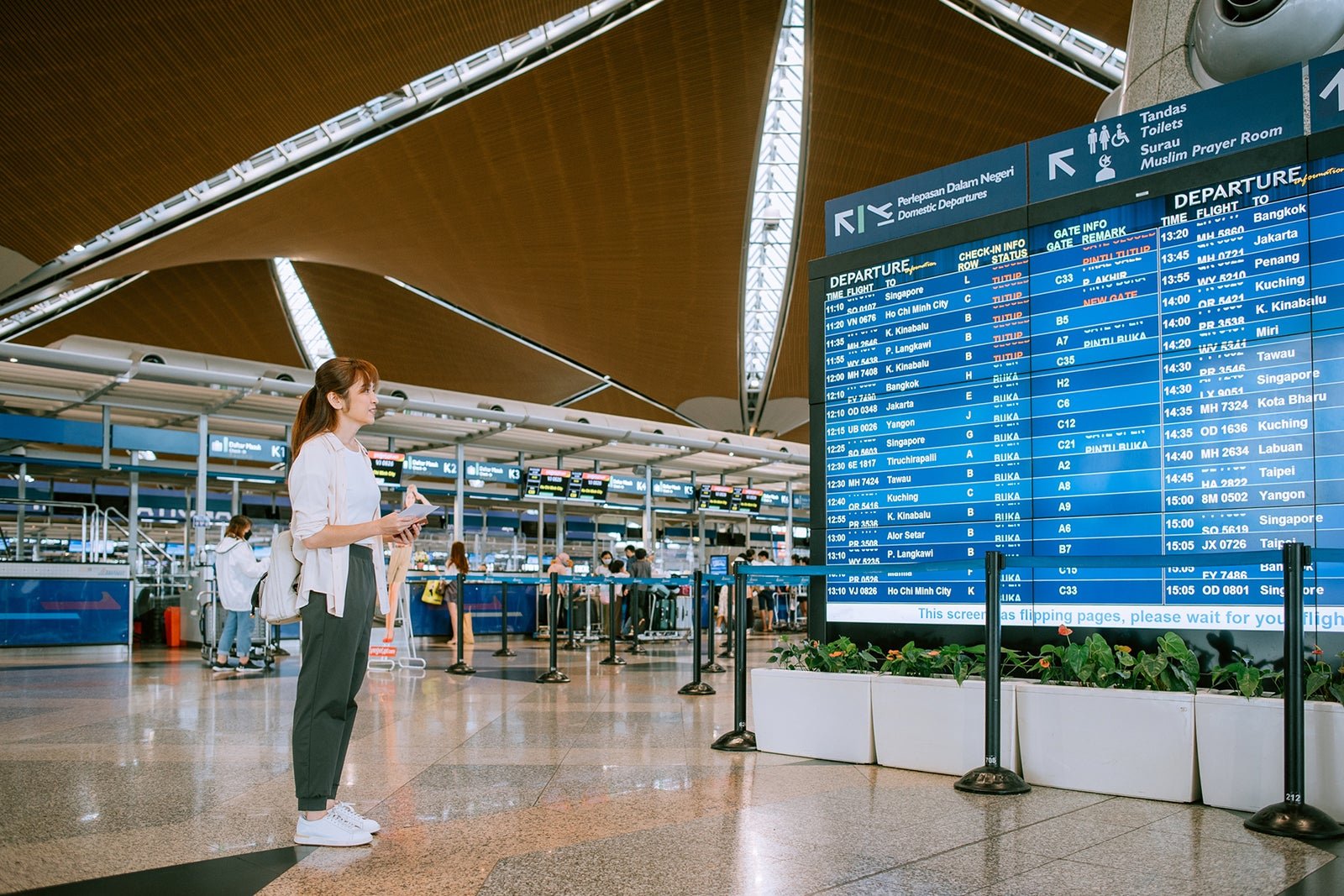Let’s be honest, flight delays and cancellations are an inevitable part of airline travel, and we’ve seen plenty of it in recent years. Unfortunately, in the U.S., there’s no federal law requiring airlines to provide passengers with money or other compensation when their flights are delayed or canceled. The Biden administration has put public pressure on airlines to provide passengers with meals, lodging, and other reimbursements with a federal dashboard that lays out each major U.S. carrier’s guarantees in the event of a “controllable” cancellation or delay — those non-weather disruptions that are the airline’s responsibility. However, it’s ultimately up to each airline to implement its own policies.
It’s often a different story when traveling to, from, or within the European Union, though. There, existing regulations provide monetary relief to passengers for flights affected by delays and/or cancellations thanks to a 2005 regulation known as EU261. As a result, airlines have shelled out hundreds of millions of dollars to passengers. This guide details how EU261 works and how affected passengers can submit claims for compensation.
What countries are part of the EU?
EU 261 helps travelers on flights within the 27 EU nations, specifically: Austria, Belgium, Bulgaria, Croatia, Cyprus, Czech Republic, Denmark, Estonia, Finland, France, Germany, Greece, Hungary, Ireland, Italy, Latvia, Lithuania, Luxembourg, Malta, the Netherlands, Poland, Portugal, Romania, Slovakia, Slovenia, Spain, and Sweden. EU airline regulations also cover flights outside of the EU, specifically in Guadeloupe, French Guiana, Martinique, Reunion Island, Mayotte, Saint-Martin (French Antilles), the Azores, Madeira, the Canary Islands, Iceland, Norway, and Switzerland. (The Faroe Islands, Isle of Man, and the Channel Islands are not included.) EU carriers, other carriers operating in these areas, and flights on partner airlines or codeshare flights outside of the EU, including connecting flights in the U.S. operated by U.S. carriers, must abide by EU261 rules.
What flights are covered by EU261?
There are a few different scenarios in which EU261 may kick in to protect passenger rights. They include flight delays and cancellations on itineraries like these:
– You’re flying an EU carrier
– You’re flying a non-EU carrier
Flight from the EU to the EU: This flight is covered by EU261. This flight is covered by EU261.
Flight from the EU to non-EU: This flight is covered by EU261. This flight is covered by EU261.
Flight outside of the EU to the EU: This flight is covered by EU261. This flight is not covered by EU261.
Flight outside of the EU to non-EU: This flight is not covered by EU261. This flight is not covered by EU261.
As detailed above, EU261 applies to all flights entirely within the EU and all flights departing from the EU, regardless of destination. If it’s a flight to the EU, though, only passengers flying on an EU carrier are subject to EU261 protections.
What about codeshare flights?
Thanks to airline alliances, there are many cases where you’ll book a ticket on one airline but actually fly on one of its partners. For instance, you may purchase a ticket on Delta Air Lines but actually fly aboard Amsterdam-based KLM. In the case of these “codeshare” flights, the airline actually flying the aircraft is responsible — not the airline from which you purchased the ticket. This means if you purchase a ticket through Air France’s website, but the flight is operated by Delta Air Lines, you wouldn’t have EU261 protections for the flight to Paris. However, if it’s a flight aboard an Air France plane, you would. (You’d be protected on any airline for the return flight from Paris to the U.S.)
What to expect when booking an EU 261-eligible ticket
Travelers flying in the EU must receive a printed or electronic notice of EU air passenger rights, which is also posted at check-in desks, check-in kiosks, and on the airline’s website. The airline must also give you a copy of this notice if you were denied boarding, your flight was canceled, or you experienced a two-plus hour delay. To file an EU261 claim, you must have a valid ticket and booking confirmation. Although revenue and award tickets qualify for compensation, free or reduced fares that are not available to the public are excluded from compensation. Certain US domestic flights are eligible. In some more limited cases, these protections may even apply to travelers on certain domestic flights in the U.S. (and other countries) thanks to steps Europe took in 2022 to broaden the rule to apply to connecting flights on an itinerary that originated in the EU.
Compensation for delays and cancellations
Rules for compensation are based on the specific time you were notified of the flight delay or cancellation and the distance of your intended flights. The longer the distance, the greater the compensation.
What is considered a flight delay under EU261?
Passengers on a delayed flight have a right to the airline’s assistance, reimbursement, and a return flight, depending on the length of the delay and the distance of the flight. If you are delayed three or more hours, you are entitled to compensation (see the chart below) unless the delay was caused by “extraordinary circumstances,” including weather, political instability, security risks, and air traffic control decisions that are out of the airline’s control. Things like mechanical and technical problems are not extraordinary circumstances. However, airline strikes, for example, may be considered an extraordinary circumstance if the disruption is due to strikes at a different airline. In cases like the latter, airlines may be exempt from paying compensation but must prove the disruptions were unavoidable even if all reasonable measures had been taken.
What should I expect if my flight is delayed?
When your flight is delayed beyond its scheduled departure time, EU261 entitles you to meals (in proportion to the wait time) plus two free phone calls, emails, or faxes, within the following duration and distance constraints:
– A delay of two-plus hours for flights of 1,500 kilometers (932 miles) or less
– A delay of three-plus hours for intra-EU flights of more than 1,500 kilometers (932 miles) and for all other flights between 1,500-3,000 kilometers (932-1,864 miles)
– A delay of four-plus hours for all other flights
If your new departure time is scheduled at least the day after your originally scheduled flight, you are also entitled to transportation to and from the airport to complimentary hotel accommodations. If your flight is delayed at least five hours after the scheduled departure, the airline is required to reimburse your ticket. If you have a connecting flight, the airline is also required to offer you a return flight to the departure airport at the earliest opportunity.
What is considered a flight cancellation under EU261?
For the purposes of EU261 compensation, a cancellation means one of the following:
– Your original flight is canceled, and you are moved to another scheduled flight.
– Your aircraft took off but was forced to return to the departing airport, and the airline transferred you to another flight.
– Your flight arrived at an airport that is not the final destination indicated on your itinerary (unless you accepted rerouting or the airport of arrival and the airport of the original itinerary service the same town, city, or region. In this case, the disruption is considered a delay).
What should I expect if my flight is canceled?
When a flight covered by EU261 is canceled, you have the right to reimbursement, rerouting, assistance from the airline, and compensation if the airline fails to inform you of the cancellation at least 14 days before takeoff. Airlines are also obligated to prove they properly notified you of the cancellation. But again, compensation is not owed in cases of flights canceled due to extraordinary circumstances. If your flight is canceled, the airline must offer you three choices:
– Ticket reimbursement plus a return flight to the airport of departure if you have a connecting flight
– Rerouting to your final destination at the earliest opportunity
– Rerouting at a later date at your convenience under comparable conditions, subject to seat availability
Additionally, you are entitled to compensation depending on the distance of your flight and the length of the delay past your originally planned arrival. The airline must offer assistance, including food, refreshments, accommodation (if you are rebooked to travel the next day), transport to and from the hotel, and two free phone calls, faxes, or emails.
In conclusion, while flight delays and cancellations are an unfortunate reality of airline travel, passengers in the European Union are better protected by EU261 regulations. These regulations provide monetary relief to passengers affected by delays and cancellations and outline specific compensation and assistance that airlines must offer. Passengers flying within the EU or departing from the EU, as well as passengers on select international flights, are covered by EU261. It’s important for affected passengers to be aware of their rights and to submit claims for compensation when necessary.

